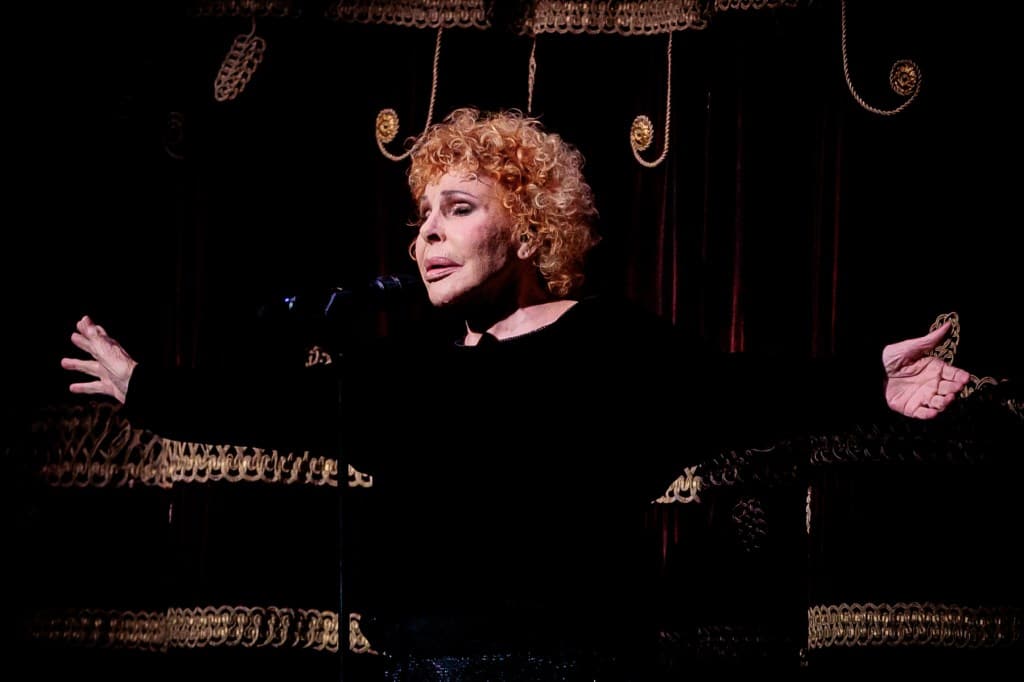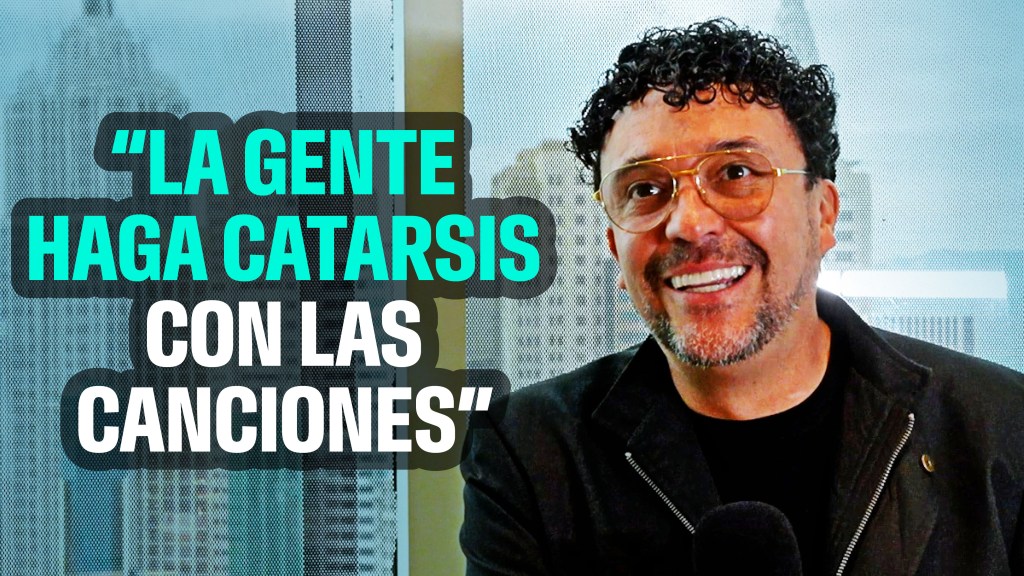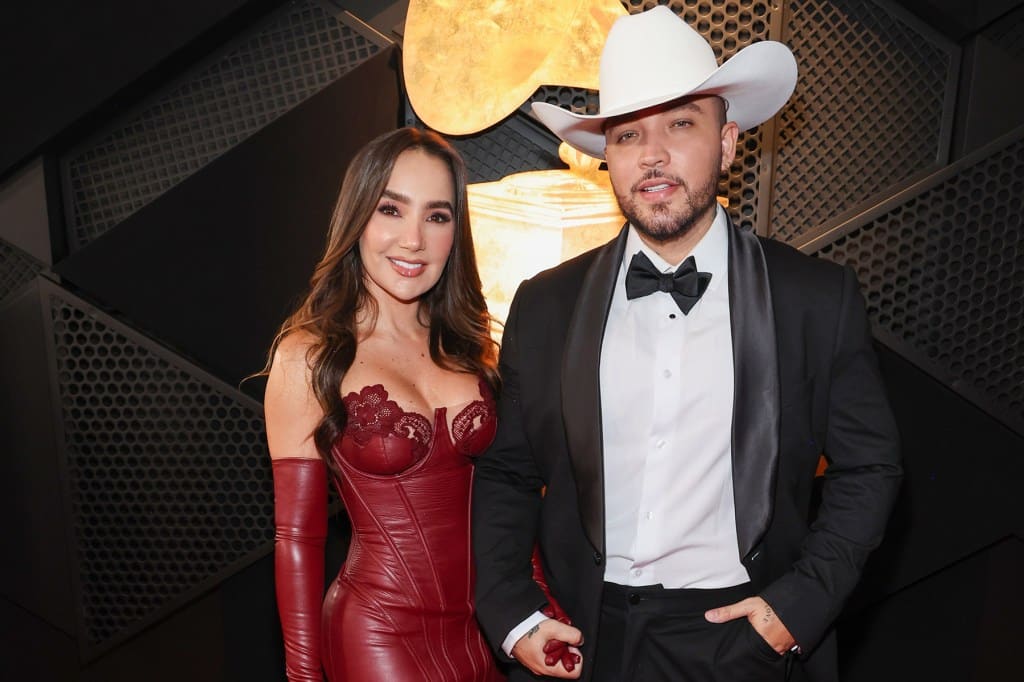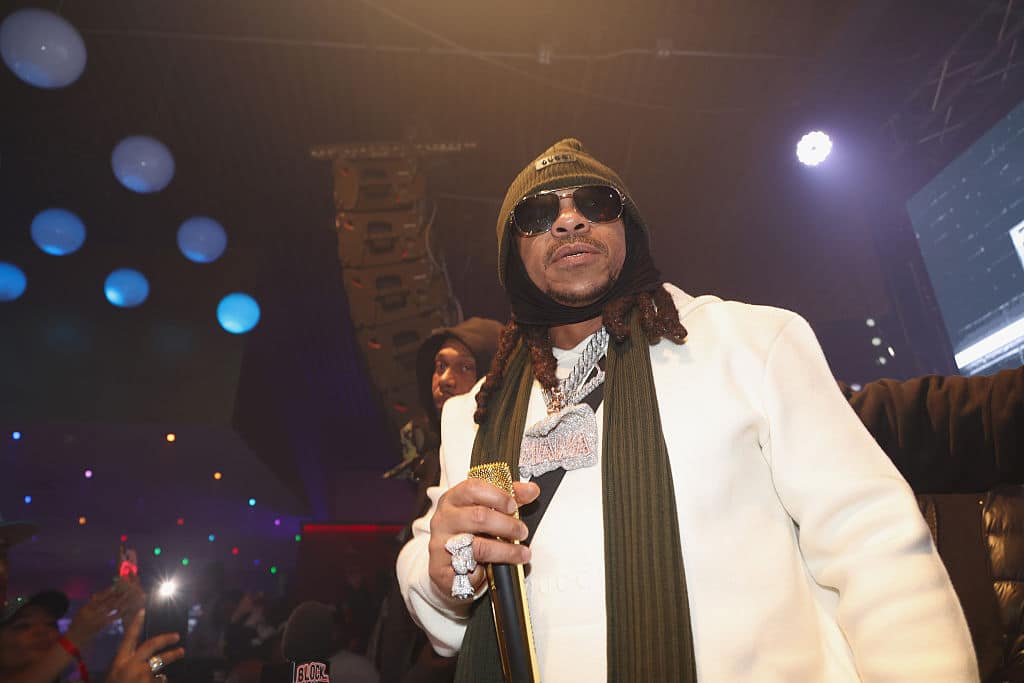Blog
Page: 41
Trending on Billboard
Ornella Vanoni, a beloved performer who had a seven decade-long singing career with such international hits as “Senza Fine” and “L’appuntamento,” has died. She was 91.
In a post on X Saturday, Italian Prime Minister Giorgia Meloni expressed her deep sorrow for the loss of Vanoni, whose “unmistakable voice” left an imprint on Italian culture for generations. “Italy loses a unique artist who leaves us with an unrepeatable artistic heritage,” Meloni said.
Vanoni died of cardiac arrest at her Milan home, Italian newspaper La Stampa reported.
Vanoni recorded more than 100 albums with sales of over 55 million copies, vaulting her to iconic status among generations of fans and earning her the moniker “The Lady of Italian Song,” according to LaPresse newspaper.
Born in Milan in 1937, Vanoni’s first love was the theater, which culminated with performances on the Broadway stage in 1964. But her passion for music combined with what LaPresse described as a “highly personal and sophisticated performing style” and vast repertoire from jazz to pop led her to collaborate with some of the most important songwriters in Italy and abroad.
Vanoni’s partnership — and love affair — with famed Genovese singer-songwriter Gino Paoli produced the hit “Senza Fine” (Without End), which shot her onto the international stage in 1961.Her later collaborations spanned a range of artistic talent including Gil Evans, Herbie Hancock and George Benson, according to Italy’s ANSA news agency.Vanoni excelled in numerous prestigious music festival awards in Italy, including the country’s most popular Sanremo Music Festival in which she participated eight times, earning second place in 1968 with the song “Casa Bianca.”Her talent extended into songwriting which was recognized when she twice won the prestigious Tenco Award — the only Italian singer to be awarded the prize as a songwriter and the only woman to have won it twice.ANSA said Vanoni was much sought-after as a guest on television programs in her later years because of her unpredictable nature, the vast wealth of anecdotes she shared and her “complete indifference to political correctness.”
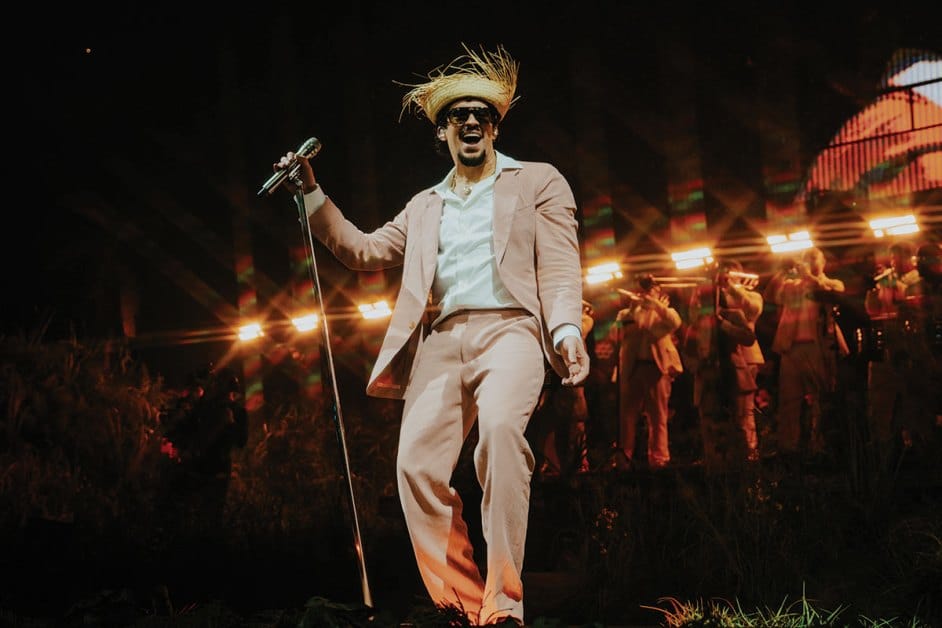
Puerto Rican band Chuwi opened the first of two nights at a sold-out Olympic Stadium on Bad Bunny’s world tour.
11/22/2025
Trending on Billboard Andrés Cepeda talks about his tribute to his hometown of Bogotá, Colombia, and how he was recently able to record a song with Celia Cruz. Andrés Cepeda: Precisely this past week, I just released a song that is a cumbia, which includes the original voice of the great Celia Cruz. It’s a […]
Icon Sportswire / Marjorie Taylor Greene / Donald Trump
Marjorie Taylor Greene was one of Donald Trump’s most loyal allies in Congress, but she is now calling it quits after her Orange Lord and Savior criticized her for calling for the release of the Epstein Files.
Late Friday evening, Marjorie Taylor Greene threw a grenade into the political landscape when she announced she was quitting Congress.
It would appear that being labeled a “traitor” by her MAGA Lord, Donald Trump, and her party’s policies actually affecting people close to home was a bridge too far for Greene.
In the video announcing she was done, she said: “I refuse to be a ‘battered wife’ hoping it all goes away and gets better.”
Donald Trump Is Happy To See Her Go
One person who is not sad to see Greene go is Donald Trump himself, who said her departure from Congress was “great news for the country” in an interview with ABC News.
“For some reason, primarily that I refused to return her never ending barrage of phone calls, Marjorie went BAD,” Trump and his little fingers wrote on Truth Social.
“Nevertheless, I will always appreciate Marjorie, and thank her for her service to our Country!”
Damn.
In her video, Greene announced her final day on the job will be January 5, 2026, a full year before her actual term is up, which means Republicans will be down a seat in their already shrinking majority.
Greene might be a bellwether for her party because she said in her video that they could kiss goodbye to their majority rule.
The once extremely loyal MAGA congresswoman said she did “not want my sweet district to have to endure a hurtful and hateful primary against me by the president we all fought for, only to fight and win my election while Republicans will likely lose the midterms”.
The Epstein Files & Trump’s Inability To Lower Costs Led To Marjorie Taylor Greene’s Decision
Greene had been one of the loudest proponents on the Republican side, calling for the release of the Epstein Files, even going against Trump, who called the moment a “Democratic hoax,” urging his party not to take the bait.
“Standing up for American women who were raped at 14, trafficked and used by rich powerful men, should not result in me being called a traitor and threatened by the President of the United States, whom I fought for,” Greene said in her resignation video.
The Epstein Files was not the only thing Marge was upset about with Trump. She was also critical of Trump for not doing enough to bring down the costs for Americans and slamming her fellow Republicans and, hilariously, Democrats for failing to keep healthcare affordable.
Is This The End of MTG’s Political Ambitions?
Now, does this mean that once she officially throws her MAGA hat into Lake Lanier, this will be the last we will see of her in politics?
According to reports, she has expressed interest in running for a state office, such as a Senate or gubernatorial seat.
Trump has shared on Truth Social that he is not willing to give her his golden blessing on either of those ambitions, telling her she shouldn’t run becuase of poor polling.
Well, we won’t miss her, just keeping it real. She is one of the reasons we got Trump in the first damn place.
First, Trump praises Zohran Mamdani, now MTG is bowing out, we are truly in the upside-down regarding American politics.
You can see more reactions below.
Trending on Billboard From career milestones to new music releases to major announcements and those little important moments, Billboard editors highlight uplifting moments in Latin music. Here’s what happened in the Latin music world this week. Explore See latest videos, charts and news Paola Jara & Jessi Uribe Welcome Baby Girl Música popular power couple Paola Jara […]
Max B has enjoyed a series of great moments since being released from prison, and the culture has embraced the talented and influential rapper as it should. With Max B back out among the masses, listeners who missed the wave should check out these essential tracks from the Boss Don.
Max B, born Charly Wingate, was sentenced to 75 years behind bars in 2009, just three years after his debut. In record time, Max stood apart from most due to his work ethic and ability to own a song via his unique sing-song and layered vocals approach. Max’s style influenced future stars, including Wiz Khalifa, Mac Miller, Hus Kingpin, and others.
The music industry changed exponentially in the years that Max was away in prison. The streaming era came to prominence while the Harlem native bided his time, but he managed to stay relevant by frequently releasing tracks and projects or appearing on tracks with current acts.
With the bulk of Biggavelli’s music being released on mixtapes or street albums, finding the tunes online will take some expert digging. To aid in the quest and get folks on the wave, we’ve compiled a collection of joints that we believe illustrate Max B’s greatness, influence, and musical genius.
For those who are unfamiliar with Wavy Crockett, we hope that these songs will connect you to the greatness of Max B. If we missed any of your favorite joints, hit us up in the comments section or on our socials.
OWWWW!
—
Photo: Getty
Trending on Billboard Olivia Dean has criticized major ticketing companies after fans flagged steep resale prices for seats on her newly announced Art of Loving Live tour. The British singer addressed the issue directly on Instagram soon after general on-sale opened. In her first post, she told fans her team was “looking into” unexpected resale […]
Trending on Billboard
Rolling Loud has unveiled the full lineup for its 2026 Australia edition, confirming a heavyweight bill of U.S. rap acts alongside some of the country’s most prominent homegrown names.
Explore
See latest videos, charts and news
Rolling Loud Australia is set to take place across two cities in March: Sydney’s Centennial Park on March 7, and Melbourne’s Flemington Racecourse on March 8. The twin one-day events mark Rolling Loud’s first shows in Australia since 2019, and the first time the global hip-hop festival brand has expanded to a two-city format in the country.
Gunna will headline the two-city run, following Rolling Loud’s earlier confirmation that the rapper would anchor the event. Ken Carson joins him at top billing, extending the Opium-affiliated artist’s growing presence across the festival’s global footprint. Sexyy Red — previously announced — leads the second tier of performers.
The 2026 bill includes several major U.S. rap acts across its main stages. Sexyy Red, Tyga, Swae Lee, Lil Tjay, Ski Mask the Slump God, NLE Choppa, Quavo, Ian and rising rapper Osamason are among the international performers scheduled across the weekend. The lineup spans established touring names, TikTok-driven breakout acts and core Rolling Loud regulars who have been fixtures across the festival’s global editions.
In addition to the international programming, Rolling Loud Australia will feature a dedicated stage focusing on local artists from Australia and New Zealand. Acts announced for the regional platform include Hooligan Hefs, Youngn Lipz, Amarni, Day1, Lil Golo & Cult Shotta, 4ourttune and Jonny Chopps. While each city will include select local-only performers, the core lineup remains consistent across both dates.
Rolling Loud first debuted in Australia in 2019 with a one-day event at Sydney Olympic Park headlined by Future, Playboi Carti and Rae Sremmurd. That edition sold out quickly and became a key marker of the festival’s global expansion cycle. Its return in 2026 marks the brand’s first Australian event in seven years and the first time Rolling Loud has staged back-to-back shows in two Australian cities.
The announcement follows a period of continued international growth for the Miami-born festival, which recently added new editions across Europe, Asia and India. Rolling Loud India will take place later this month with a lineup headlined by Central Cee, Wiz Khalifa, Don Toliver and Karan Aujla.
Rolling Loud Australia 2026 will run in partnership with Primuse Entertainment as the local production partner. Further scheduling and site details are expected in the lead-up to the March events.
JIM WATSON / Zohran Mamdani
MAGA Republicans were foaming at the mouth at the idea of Donald Trump owning Zohran Mamdani during his White House visit; spoiler alert, that wasn’t the case at all.
For months, Donald Trump railed against Democratic Socialist Zohran Mamdani, going as far as to call him a “communist lunatic” and threatening to leave NYC in the dark in terms of federal funding if Mamdani became mayor.
Mamdani didn’t mince words either, calling Trump a “despot.”
That wasn’t the case when the two men met face-to-face for the first time, and it turned out to be a love and praise fest.
Proving that we are in the upside-down, Trump was complimentary of Mamdani, while the Mayor-elect sounded hopeful that the two could work together to improve the lives of New Yorkers by lowering costs.
In a very jaw-dropping moment, Trump said that “I met with a man who’s a very rational person,” when one reporter asked, “[Elise] Stefanik has called Mamdani a ‘jihadist.’ Do you think you’re standing next to a jihadist right now?”
“I’ll really be cheering for him,” Trump continued.
Donald Trump even said, “he would, I really would,” be comfortable living in NYC under Mamdani’s mayoriship.
Despite her Orange Lord and Savior basically making her look and sound stupid, the NYC Governor hopeful stuck to her racist guns in labeling Mamdani a “jihadist.”
Stefanik wrote in a post on X, formerly Twitter, in response to Trump, “We all want NYC to succeed. But we’ll have to agree to disagree on this one. If he walks like a jihadist If he talks like a jihadist If he campaigns like a jihadist If he supports jihadists, He’s a jihadist.
Trump opened up their Oval Office meeting, congratulating Mamdani on his victory and running “an incredible race against a lot of smart people.”
“I think you’re going to have, hopefully, a really great mayor,” Trump said. “The better he does, the happier I am. I will say there’s no difference in party. There’s no difference in anything, and we’re going to be helping him to make everybody’s dream come true — having a strong and very safe New York.”
MAGA Heads Are Spinning
As expected, MAGA heads are spinning after Trump threw every single Republican who has spent a reasonable amount of time calling Mamdani everything but his name.
MAGA political activist Laura Loomer is beside herself after witnessing what she saw in the Oval Office between Orange Mussolini and Zohran Mamdani.
“Wild to allow a jihadist communist to stand behind the President’s desk in the Oval Office. Sad to see,” Loomer wrote on X, formerly Twitter.
In another post she wrote, “So we are just going to normalize communism? Aren’t you a host of a conservative radio program? @ClayTravis What are you preserving by glazing communism, anti-white racism, Jew hatred, open borders and Islamic terror? Sad to see. The GOP will lose the midterms.”
Bruh.
MAGA world is in utter chaos, and we love to see it.
You can see reactions below to the mind-blowing Oval Office moment.
British music has had such a banner year in 2025, that Radiohead’s return has flown a touch under the radar. With Olivia Dean, Yungblud, Lola Young and RAYE all conquering the Billboard charts in the U.S., and Oasis putting on the biggest tour of the year, the return of the art-rock fivepiece after an seven-year […]

 State Champ Radio
State Champ Radio 